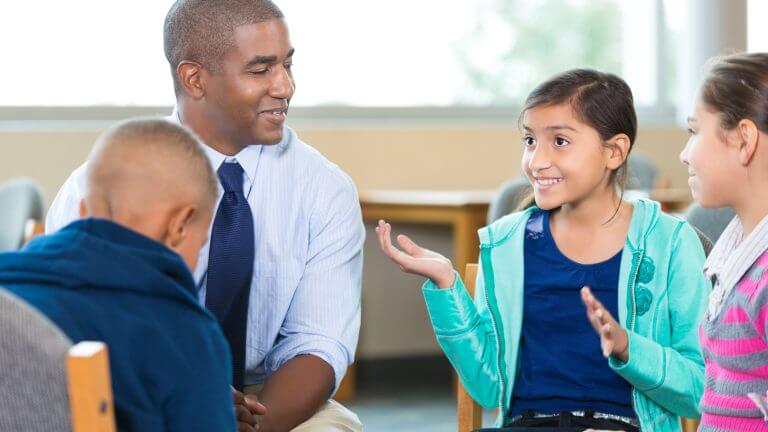Your school or campus might already use conferences to deal with behavior issues, but restorative conferences are a bit different. In restorative conferences, victims, offenders, and their friends and family take an active role in resolving any conflicts.
A restorative conference is an example of restorative discipline. You should use restorative practices when you wish to repair harm done and reestablish relationships within your school as opposed to strictly punishing students. During a conference, your students get a chance to deal with the consequences of their wrongdoing and decide how to best repair and harms caused together.
You shouldn’t think of these conferences as counseling sessions or meditation processes either. Instead, restorative conferences should take a victim-sensitive, problem-solving approach to conflicts. Your students learn to address problems and conflicts and create solutions that suit their unique needs.
What happens during a Restorative Conference?
During your restorative conferences, your students will get a chance to share their feelings, ask questions, and have a say in any outcomes. Victims, get the opportunity to confront their offenders and explain how the offender’s actions have affected them. Offenders also get the chance to listen to the victim, participate in the conference, and repair any harm done. Typically offenders will apologize, make amends, and agree to a personal or community-service centered solution to the problem. As a facilitator, you are not the deciding voice for your students. Instead, students come up with their own solutions to conflicts.
As a result, offenders are held accountable for their actions without being unfairly punished. Offenders can also lose their “offender” label, repair and reestablish relationships, and join your community again.
How do you start a restorative conference?
First, before starting a restorative conference, you should determine if a conference is even appropriate. There are a range of restorative discipline options to choose, from informal to formal. Restorative conferences will not always be the best fit for solving disagreements. Second, make sure that your victims and offenders have agreed to attend. After that, invite others affected by the incident (this can be family members, friends of the victim or offender, etc).
Each restorative conference will have a facilitator, that’s the role you’re likely taking on. As a facilitator you’ll stick to a simple written script and keep the conference focused without being an active participant. You’ll provide an opportunity for each participant to speak, staring with the offender by a set of open-ended questions. Next, the victim and their friends and family will explain the incident from their perspectives. Victims will share how the incident made them feel or how it affected them. The offender’s friends and family are then asked to do the same.
As you move through the conference and approach the end, you’ll ask the victim what they’d like the outcome of the conference to be. Whatever the response is, the victim, offender, and everyone else at your conference will discuss it. When you reach a decision, you write and sign a simple contract. Both parties then leave with a new understanding of each other’s feelings, and with a concrete course to correct the wrong-doing that they decided upon together.
Restorative conferences switch up our responses to wrongdoing in schools. They encourage your students to be active and willing participants in their own discipline and don’t seek to establish unilateral punishment techniques to all students for all offenses. By involving the victim and offender into the process when appropriate, you help reestablish connections, build relationships, and foster a sense of growth and community within your students.
Angela has 24 years of experience in education. She has been in her current position for 12 years. Angela has trained and provided coaching support to over 200 campuses for PBIS. She is also a certified Restorative Practices coordinator. She is a trainer for Interventions, Coaching Classroom Management, CHAMPS, and Why Try.






Add comment